.FILE Ransomware Deletion: Effective Way To Delete .FILE Ransomware In Just Few Steps
.FILE Ransomware infects following browsers| Internet Explorer Versions | Internet Explorer 7-7.00.6000.16386, Internet Explorer 8-8.00.7000.00000, Internet Explorer 7-7.00.6001.1800, IE 8:8.00.7600.16385, IE 9:9.0.8112.16421, Internet Explorer 9-9.0.8080.16413, IE 7:7.00.6001.1800, Internet Explorer 7-7.00.6000.16441, IE 10:10.0.8400.00000, IE 8:8.00.6001.17184, IE 8:8.00.6001.18241, IE 8:8.00.6001.18702, IE 10:10.0.9200.16384, Internet Explorer 9-9.0.8112.16421, Internet Explorer 7-7.00.6000.16441, Internet Explorer 8-8.00.7600.16385, Internet Explorer 8-8.00.6001.17184, IE 8:8.00.6001.18372 |
| Chrome Versions | Chrome 56.0.2924, Chrome 51.0.2704, Chrome 55.0.2883, Chrome 54.0.2840, Chrome 52.0.2743, Chrome 53.0.2785, Chrome 58.0.3026.0, Chrome 49.0.2623, Chrome 50.0.2661, Chrome 48.0.2564, Chrome 57.0.2987 |
| Mozilla Versions | Mozilla:39, Mozilla:45.2.0, Mozilla Firefox:44.0.2, Mozilla Firefox:45.5.0, Mozilla:50.0.2, Mozilla Firefox:38.0.1, Mozilla Firefox:38.2.1, Mozilla:43.0.2, Mozilla Firefox:38.1.1, Mozilla:41.0.2, Mozilla Firefox:45.7.0, Mozilla:46 |
Detail About .FILE Ransomware With Erase Steps
Basic Knowledge Of .FILE Ransomware
.FILE Ransomware is suspected as extremely hazardous System virus which spread in the System secretly and performs malicious functionality to make the System compromised. It poses harmful impacts on the System behavior and tries to take full control over the System by modifying the default settings. It is designed by cyber criminals which helps them by transferring your confidential and financial information. They can give you big loss and make you suffer from identity theft situation. It is responsible for weaken the System performance and modifies registry entries with malicious payloads. It also interrupts your surfing session by displaying unwanted advertisements and also blocks your visit to your favorite sites. You will also experience some change of default homepage browser and desktop background simultaneously. So if you notice its notorious consequences then Erase it immediately without delay any more.
Guide: 1 Delete .FILE Ransomware From Registry Editor
Guide: 2 Delete .FILE Ransomware From Control Panel
Guide: 3 Start Your Computer In Safe Mode With Networking
Guide: 4 Delete .FILE Ransomware Related Process From Task Manager
Guide: 5 Delete .FILE Ransomware From Browsers
Guide: 1 Delete .FILE Ransomware From Registry Editor
- Step 1: Open Run Window By Pressing the key Win+R.

- Step 2: Type regedit and enter OK.

- Step 3: Find & Delete all Registry files related to .FILE Ransomware.
- Step 1: Go Start menu and select Control panel.
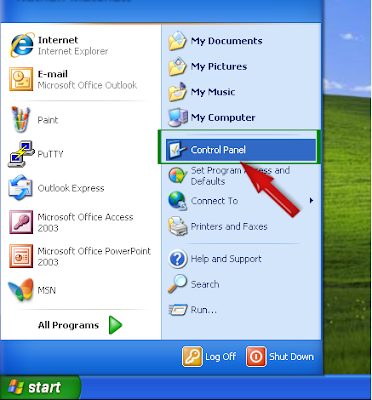
- Step 2: Select Add or Erase program option.

- Step 3: Search & Select unwanted program whom you wanted to Erase from System.
- Step 4: Click on Delete Button.

- Step 1: Click on Windows Key from your keyboard.
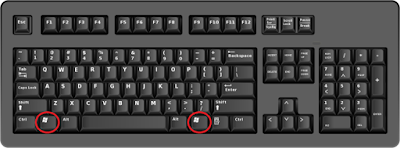
- Step 2: Select Control panel Option From start menu.

- Step 3: Select Erase a Program option from Program menu.

- Step 4: Select Unwanted programs from your System whom you want to Erase.

- Step 1: Press Win+R button to Open Run Box Command Window.

- Step 2: Type Control panel in Run Window and Press Enter.

- Step 3: Click on Delete a program.

- Step 4: Select .FILE Ransomware and other malicious program whom you want to Erase and then Click Delete.

- Step 1: Press Start button and Choose Setting option.
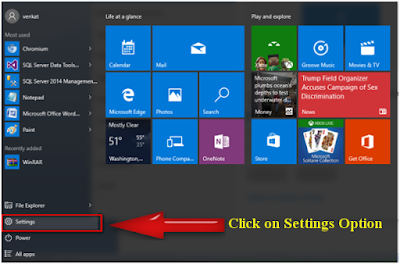
- Step 2: Select System option.

- Step 3: Click on Apps and Features option.

- Step 4: Select .FILE Ransomware or suspicious programs whom you want to Erase and Click Delete.

Erase .FILE Ransomware From Windows XP/Vista
- Step 1: Restart your System.
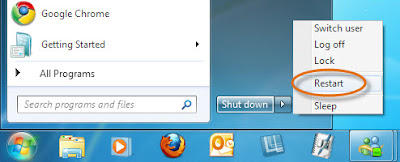
- Step 2: Press F8 Key to open Advance Boot Option Window.

- Step 3: Opened Advance Boot Option.
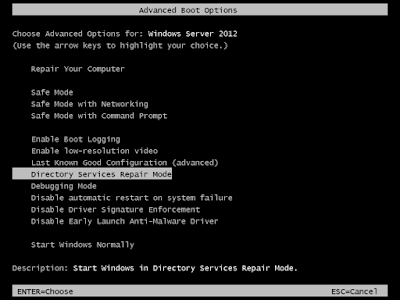
- Step 4: Select “Safe Mode with Networking” option then hit Enter button from keyword.
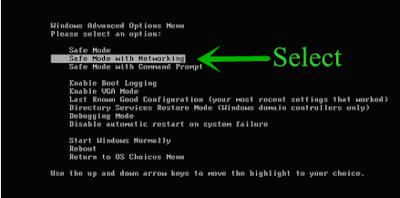
- Step 1: Click on Start menu and Press Shift key then Click on Restart button.
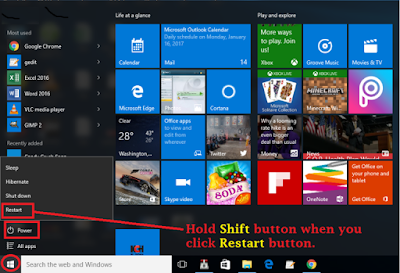
- Step 2: Select on Troubleshoot option.

- Step 3: Click on Advanced Options.

- Step 4: Select Startup Settings option.

- Step 5: Select Enable Safe Mode option and then Click Restart button.

- Step 6: Press F5 button to Enable the Safe Mode With Networking option.

Guide: 4 Erase .FILE Ransomware Related Files From Task Manager
- Step 1: Press ALT+Ctrl_Del Button From the key board simultaneously.
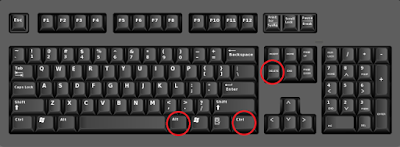
- Step 2: Select Windows Task Manager Option from Windows screen.

- Step 3: Choose the malicious process and click on End Task Button.

Delete .FILE Ransomware From Mozilla Firefox Browser
- Step 1: Launch Mozilla Firefox and click on Menu icon (≡).
- Step 2: Now Click on Add-ons from the open Window.
- Step 3: In the Add-ons Manager tab and choose the Extension or Appearance Panel.
- Step 3: Select .FILE Ransomware and other suspicious extensions and click on Delete button.
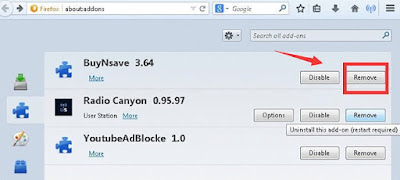
Delete .FILE Ransomware From Google Chrome Browser
- Step 1: Launch Chrome browser and click on Settings icon (≡).
- Step 2: Click on Tools option and select Extensions.
- Step 3: From the opened Extension Window you need to locate .FILE Ransomware if found then click on the garbage bin icon appear on right of it.

Delete .FILE Ransomware From Internet Explorer Browser
- Step 1: Launch Internet Explorer and Press Alt+T button or Click on (≡) from right top corner.
- Step 2: Select Tools option and click Manage Add-ons option later choose Toolbars and Extension tab.
- Step 3: Select .FILE Ransomware and other malicious add-ons and select Disable button.

Delete .FILE Ransomware From Microsoft Edge Browser
- Step 1: Launch Microsoft Edge web browser and Click on More(....) icon.
- Step 2: Choose Settings and select a specific page or pages from under the Open option.

- Step 3: Select Custom option and enter the URL of the page that you wish set as your browser homepage.
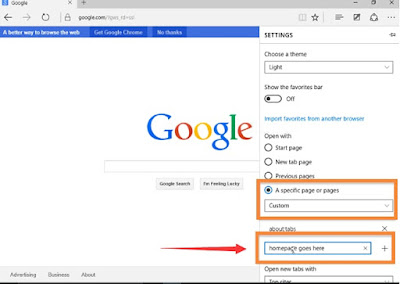

No comments:
Post a Comment